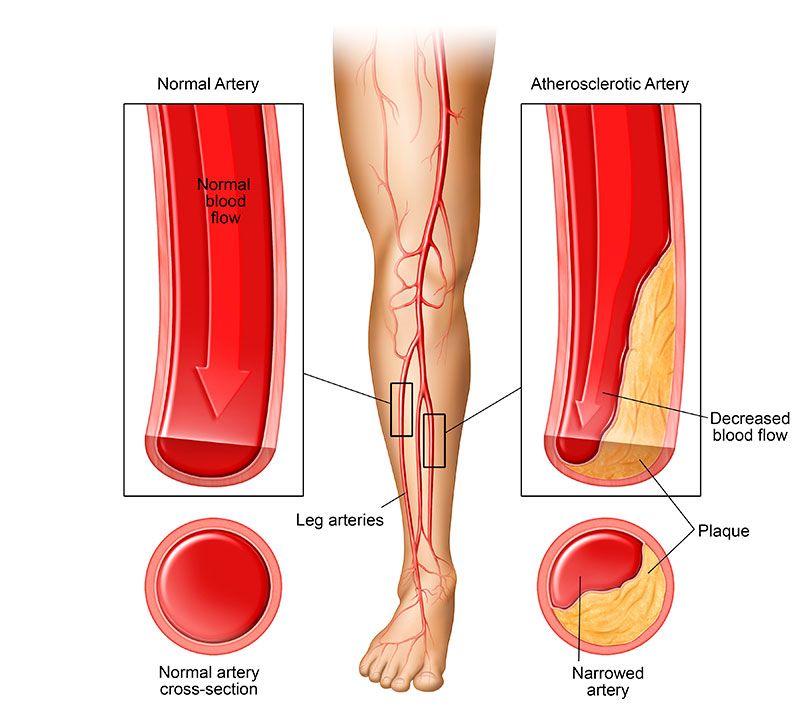What Causes Intermittent Leg Pain
Muscle pain can be short-term or chronic. The leg might be very tender and you might also have a muscle spasm swelling or trouble moving the leg.

Lower Leg Pain The Complete Injury Guide Vive Health
Medications drugs or toxins.

What causes intermittent leg pain. Most causes are due to affected blood flow. You can take steps to prevent and manage muscle pain and the conditions that cause it. Leg pain can also be caused.
Rarely the underlying cause may be a serious medical condition requiring immediate medical attention. The pain of leg cramps can be mild to severe. Upper leg numbness thigh weakness thigh pain from overuse.
Some types of leg pain can be traced to problems in your lower spine. Leg pain or cramps at night may be caused by sitting for extended periods of time sitting improperly overuse of leg muscles or standing and working on. Nerve pain is typically described as sharp shooting electric-like or searing pain.
Symptoms of intermittent claudication can vary but may include. Many medications drugs and toxins can cause unpleasant effects lower leg tingling is one possibility. The pain may be intermittent or constant.
The following are some of the causes for leg pain at night. Muscle tendon or ligament damage can cause leg pain. Excessive alcohol intake can also lead to nerve damage long-term.
Arm numbness hand numbness foot numbness pain in one leg thigh numbness. In some individuals a dull ache may occur. Usually the discomfort goes away as soon as the person with intermittent claudication.
It often occurs in the feet and lower part of the legs as a result of diabetes. It can take a number of forms stabbing sharp dull aching or tingling. Here are some common causes of sore legs.
Depending on the cause of nerve damage the specific leg symptoms may differ. A feeling of sudden leg weakness causing your legs to give out or buckle can be alarming. It may last for a few seconds or minutes but it usually goes away without intervention.
Common causes of pain in one or both legs include. Repetitive strain injury of the quadriceps. Spinal stenosis causes narrowing in the spine.
It may also produce a sensation of hot or warm water running down the thigh andor leg. Spinal nerve compression or irritation. Certain chemotherapy drugs cause damage to the nerves in the arms and legs and can be associated with leg tingling.
Leg pain may be caused due to a problem in the lower back the pelvis or a problem that originates within the leg. Many things can cause muscle pain myalgia including injuries infections and diseases. Artery blockages also known as peripheral artery disease Many people with poor circulation have leg pain when walking or calf pain when walking.
This is when the muscles suddenly contract. Muscle sprains and strains. Delayed-onset muscle soreness DOMS occurs after exercise.
Leg pain can be constant or intermittent develop suddenly or gradually and affect your entire leg or a localized area such as your shin or your knee. Weakness in your leg s may occur from problems in the nerves andor muscles in your lower body and is usually treatable. Thigh bone infection osteomyelitis.
The pain is normally felt in the calf and will go away quite quickly by itself. Lower back pain back pain that shoots down the leg back pain that shoots to the butt difficulty walking thigh pain. Nerve damage in the leg may cause numbness pain or tingling.
This is called intermittent claudication. Some leg pain is simply annoying but more-severe leg pain can affect your ability to walk or to bear weight on your leg. Artery blockages are a serious reason for leg pain at night.
Doctors call leg pain that comes and goes intermittent claudication. Repetitive strain injury of the upper leg is caused by consistent repetitive use. Pain cramping or aching in the leg or legs that is induced by exercise and relieved by rest.
Other causes of leg pain. Symptoms are usually felt from the feet up to the buttocks. Most leg pain results from wear and tear overuse or injuries in joints or bones or in muscles ligaments tendons or other soft tissues.
Learn about all potential causes READ MORE. The narrowing puts pressure on nerves and the spinal cord and can cause pain.

Vascular Leg Pain Vs Leg Pain What S The Difference

Pin On Peripheral Artery Disease
